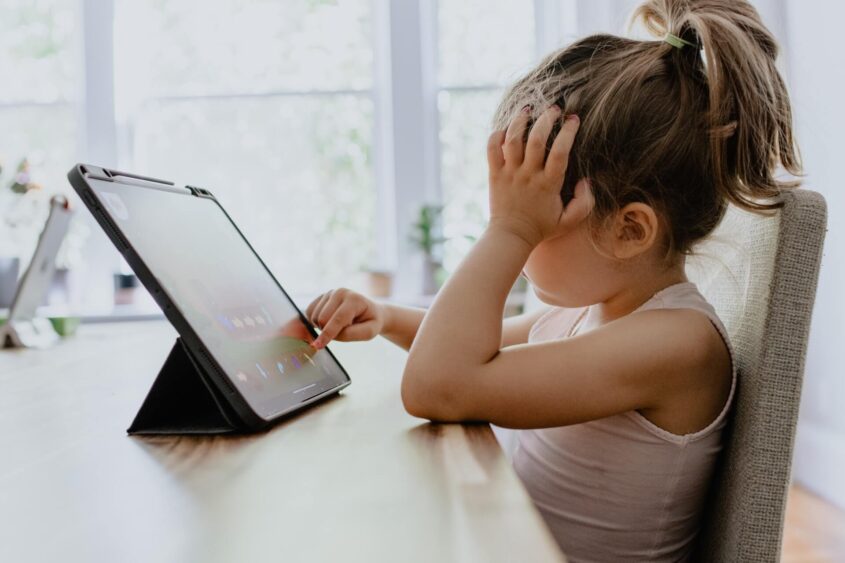Nowadays, screens are everywhere. Controlling a child’s screen time can be challenging. Your little one is going to spend some time on them. So make sure it is as productive as possible. According to the research, 88.5%(326 million people) of the total population of earth is exposed to screen. Which is an alarming situation. The excessive use of screens is leading to serious health and mental issues. Which can be threatening for mankind.
1. Age and Screen Time
Most of a baby’s brain development happens in the first 2 years of life. That’s why it’s so important for babies and toddlers to explore their environment and experience many sights, sounds, tastes, and textures. Interacting and playing with others helps children learn about the world around them.
- Babies younger than 18 months should have no screen time at all.
- For 2 to 3 year old kids, 1 hour of screen time is enough.
- Kids of age 7 to 10 years can have screen time up to 1 and a half hours.
- According to WHO, the maximum screen time for any kid is 2 hours.
2. Effects of Extra Screen Time
Too much of everything is bad. Whether it is eating, sleeping or gaming. The same case is applied in this situation as well. The use of screens is informative but, excessive use of them can cause serious health and mental issues. Such as:
- Obesity
- Irregular Sleep Schedules
- Behavioral Problems
- Loss of Social Skills
- Less Time for Play
- Shorter Duration of Sleep
Check it out 5 Questions That Can Lead You to a Meaningful Life
3. Tips For Parents
Last but not least, the real heroes who can play their part. But the question is how can they do it? Thankfully we have got this covered. Some of the most effective tips that are reviewed by parents are:
- Preview programs, games, and apps before allowing your child to view or play with them. Organizations such as Common Sense Media can help you determine what’s appropriate. Better yet, watch, play or use them with your child.
- Seek out interactive options that engage your child, rather than those that just require pushing and swiping or staring at the screen.
- Use parental controls to block or filter internet content.
- Make sure your child is close by during screen time so that you can supervise his or her activities.
- Ask your child regularly what programs, games, and apps he or she has played with during the day.
- When watching programming with your child, discuss what you’re watching and educate him or her about advertising and commercials.
You may want to read about Your First Childhood Memory and Entire Personality.

















nice article